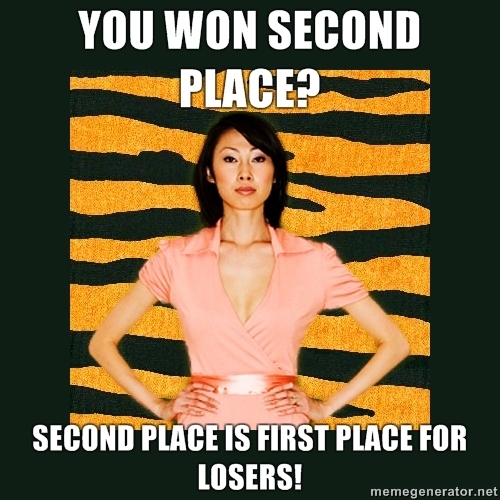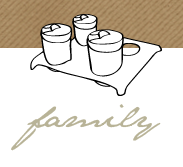
I have been sitting back in fascination for some weeks now watching the scathing reaction that has continued to out pour towards Amy Chua, aka the “Tiger Mom,” for some weeks now.
In case you missed the brouhaha, Chua is a Yale professor who recently released a memoir titled Battle Hymn of the Tiger Mom. The flames were first fanned with an excerpt of the book shared in the Wall Street Journal. The WSJ titled the article “Why Chinese Mothers are Superior.” With a title like that, it’s no surprise really that the article received almost 8,000 online comments and spawned countless follow-on pieces in print and television.
While many of the excerpted anecdotes — calling her daughter “garbage,” or locking her out in the winter until she agreed to practice piano — did indeed make me react by covering my mouth in utter shock … I have to say that, in some ways, I can’t help but admire her mothering.
Well, maybe “admire” is too strong a word, but just consider the sheer energy it would take to be a Tiger Mom. After returning from a demanding day job, Chua would spend hours ensuring that homework and music lessons were completed to perfection. Literally HOURS. She notes, for example, what happens if a child returns with a “low” mark on a report card:
If a Chinese child gets a B—which would never happen—there would first be a screaming, hair-tearing explosion. The devastated Chinese mother would then get dozens, maybe hundreds of practice tests and work through them with her child for as long as it takes to get the grade up to an A.
This raises all sorts of questions for me, like, “Do Chinese children never have a learning disability that might make an A an unrealistic prospect?” and “What are Chinese fathers doing while Chinese mothers are busting their butts as Tigers Moms?” But if you look beyond these kinds of questions, this sort of parental dedication to getting that A is pretty remarkable. The A is always considered possible — you just need to work hard enough to get it.
Now, I don’t know about you, but spending hours doing hundreds of practice tests sounds like a real nightmare. I’m tired after work and there is only so much time left in a day after dinner. Granted, I do have lower energy levels than most people I know. (Yes, I have gone to my doctor about this, with limited success.) But even if I imagine having more energy, I can’t imagine wanting to spend it on this. Which means that even if I did believe that this kind of practice would be helpful to my child’s development, I wouldn’t actually take it on. It is just too much work.
And Chua knows this about me. She writes:
All the same, even when Western parents think they’re being strict, they usually don’t come close to being Chinese mothers. For example, my Western friends who consider themselves strict make their children practice their instruments 30 minutes every day. An hour at most. For a Chinese mother, the first hour is the easy part. It’s hours two and three that get tough.
But Chua isn’t afraid of the work. She’s ready to put in as many hours as it takes to get the results she feels are worthy. I can’t help but admire that kind of dedication. It’s pretty impressive, really.
Beyond the sheer energy and time that Chua puts into her mothering efforts, I have been giving quite a lot of thought to this statement (the bold is mine):
First, I’ve noticed that Western parents are extremely anxious about their children’s self-esteem. They worry about how their children will feel if they fail at something, and they constantly try to reassure their children about how good they are notwithstanding a mediocre performance on a test or at a recital. In other words, Western parents are concerned about their children’s psyches. Chinese parents aren’t. They assume strength, not fragility, and as a result they behave very differently.
I think there is a lot of truth in this statement. That’s why every kid gets a medal after a sports tournament these days — not just the winning team. And I also wonder how this statement applies to me, and my parenting. Have I been assuming fragility in my children, rather than strength? If I assumed strength, might I react to a particular situation differently?
So these two things — relentless dedication and an assumption of strength — have still got me thinking, and yes, even admiring the Tiger Mom.
What to you think about the whole “Tiger Mom” brouhaha? Have you Chua’s book yet? How do you feel about the way Chua categories Chinese and Western parents ….
















Speak Your Mind